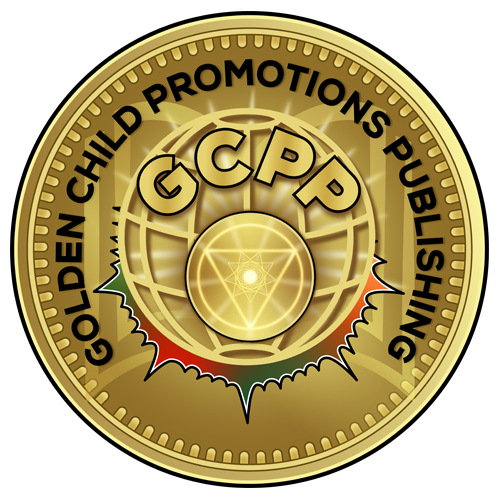In the ever-evolving landscape of publishing, authors are faced with a multitude of choices when it comes to bringing their literary creations to life.
Traditional publishing, self-publishing, and collaborative/hybrid publishing each offer unique advantages and challenges, making the decision-making process a daunting task for many aspiring writers.
In this comprehensive guide, we will:
- Delve deep into the intricacies of each publishing method
- Explore their pros and cons
- Provide valuable insights to help you, the author, make informed decisions
Traditional Publishing: The Path to Prestige
Traditional publishing stands as the gold standard in the literary world, providing you with the prestige and validation of being published by established publishing houses.
In this model, you submit your manuscripts to literary agents or publishing houses, entrusting them with tasks like editing, design, distribution, and marketing of your book. In return, you receive an advance payment and royalties on book sales.
Example Breakdown for $1000 in Sales:
Royalty Rate: 10%
Royalty Earned: $100
Pros:
Prestige and validation: Being published by a reputable publishing house lends credibility to your work, it can also open doors to literary awards and recognition.
Professional support: Traditional publishers provide authors with a team of professionals, including editors, designers, and publicists, to help polish and promote their books.
Wide distribution: Traditional publishers have extensive distribution networks, ensuring that your book reaches bookstores, libraries, and online retailers worldwide.
Cons:
When you choose traditional publishing, you might find yourself facing limited creative control.
As an author, you may have little say in the editing, cover design, and marketing of your book, as these decisions are typically made by the publisher.
Moreover, the traditional publishing process can be lengthy and demanding.
It often takes months or even years for manuscripts to be accepted and published, making it a slow and arduous journey for authors.
Additionally, traditional publishing usually offers lower royalties compared to self-publishing.
While you may receive an advance payment, the royalties on book sales are typically lower, impacting your overall earnings from your work.
Golden Child Promotions Publishing, one of the top publishers in the UK, US, and globally, offers traditional publishing services that uphold the highest standards of quality and professionalism.
Self-Publishing: Empowering Authors to Take Control
In contrast to traditional publishing, self-publishing puts you in the driver’s seat, giving you full control of the publishing process. From writing and editing to design and distribution, every decision is yours to make.
Thanks to digital platforms like Amazon Kindle Direct Publishing (KDP) and IngramSpark, self-publishing has never been more accessible and affordable. These platforms provide the tools and resources you need to bring your book to life and reach readers around the world.
Pros:
With self-publishing, you’re the boss, retaining full control over every aspect of your book, from cover design and formatting to pricing.
Your vision is front and center, ensuring that your book reflects exactly what you want it to be.
Self-publishing also means getting your book to market faster.
While traditional publishing can take months or even years, self-publishing allows you to publish your book in a matter of weeks.
This quick turnaround means your book can reach readers sooner, without the lengthy wait times.
Let’s talk royalties.
With self-publishing platforms, you can earn higher royalties on book sales compared to traditional publishing. Some platforms offer up to 70% of the retail price, putting more money in your pocket for every copy sold. It’s your hard work, and you deserve to reap the rewards.
Example Breakdown for $1000 in Sales:
Royalty Rate: 70%
Royalty Earned: $700
Cons:
When it comes to self-publishing, there are a few challenges to be aware of:
First off, there’s marketing. While self-publishing gives you the freedom to call the shots, it also means you’re responsible for getting the word out about your book. Without the support of a traditional publisher, marketing and promoting your book can be a real challenge.
Then, there’s the stigma. Despite the fact that self-publishing is becoming more accepted, some readers, reviewers, and literary gatekeepers still see self-published books as second-rate compared to traditionally published works. It’s something to keep in mind as you navigate the publishing world.
Finally, there’s quality control. Without a traditional publisher to oversee things, it’s up to you to ensure that your book meets professional standards in terms of editing, design, and production. It’s a lot of responsibility, but with the right attention to detail, you can publish a book you’re proud of.
Golden Child Promotions Publishing recognises the growing popularity and importance of self-publishing. With our expertise and support, we can guide you through the self-publishing process and help you achieve your publishing goals.
Hybrid Publishing: Finding the Best of Both Worlds
Collaborative/hybrid publishing gives you the best of both worlds, serving as a middle ground between traditional and self-publishing. With this approach, you get to keep creative control over your book while also tapping into the professional support and distribution networks typically associated with traditional publishing. It’s like having the freedom of self-publishing with the backing of a traditional publisher to help you along the way.
Example Breakdown for $1000 in Sales:
Initial Investment: $1000
Royalty Rate (after deducting costs): 50%
Royalty Earned: $500
Pros:
With hybrid publishing, you get the best of both worlds:
Creative control with professional support: Collaborative/hybrid publishers are your partners in bringing your vision to life. They work closely with you to ensure that your book reflects your vision while providing top-notch editing, design, and marketing services.
Enhanced distribution: Collaborative/hybrid publishers have extensive industry connections and distribution networks, ensuring that your book reaches a wide audience of readers and retailers. You’ll get maximum exposure for your work without having to navigate distribution channels on your own.
Flexibility: Collaborative/hybrid publishing offers you flexibility like no other. You can choose from a range of publishing packages and services tailored to your needs and budget. Whether you’re looking for basic editing services or comprehensive marketing support, hybrid publishing allows you to customise your publishing experience to suit your specific requirements.
Cons:
Here’s what you need to know about collaborative/hybrid publishing:
Cost: While collaborative/hybrid publishing provides professional services and support, authors need to foot the bill for publishing packages. These costs can vary widely, ranging from totally free of charge to several thousand dollars. It’s essential to assess your budget and choose a package that aligns with your financial goals.
Quality: Not all collaborative/hybrid publishers offer the same level of quality. It’s crucial to do your homework and thoroughly research potential publishing partners to ensure you receive top-notch services and support. Look for publishers with a proven track record of success and positive reviews from other authors.
Royalties and rights: Collaborative/hybrid publishing agreements differ in terms of royalties and rights. Before signing on the dotted line, carefully review and negotiate your contract to ensure you retain control over your work and receive fair compensation. Don’t be afraid to advocate for yourself and seek legal advice if necessary. Your work is valuable, and you deserve to be fairly compensated for it.
Golden Child Promotions Publishing, recognised as one of the top publishers in the UK, US, and globally, offers collaborative/hybrid publishing services designed to meet the diverse needs of authors. With our expertise and dedication to excellence, we can help you navigate the complexities of publishing and achieve your literary aspirations.
Making the Right Choice for Your Book
In conclusion, the choice between traditional, self, and hybrid publishing ultimately depends on your goals, preferences, and resources as an author.
Traditional publishing offers prestige and support but may lack creative control and flexibility.
Self-publishing empowers authors to take control but requires self-promotion and marketing savvy.
Collaborative/hybrid publishing offers a middle ground, combining professional support with creative control, but may come with additional costs and contractual considerations.
Before making a decision, it’s essential to:
- Research and evaluate your options carefully.
- Consider your long-term goals and aspirations as an author
- Seek guidance from industry professionals and fellow authors.
By knowing the pros and cons of each publishing method and making informed decisions, you can set yourself up for success in the competitive world of publishing.
CLICK BELOW to find out more about your publishing options with GCPP:


Recent Comments